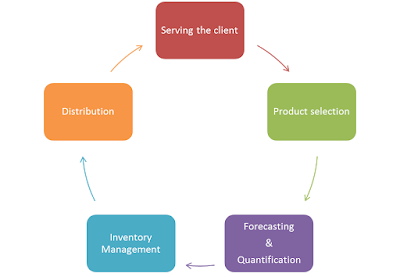Differentiating your career as a Learning and Development Professional
The L&D field is an interesting field with many sides. While many assume the learning specialist role, we need to embrace change with the fast changing business world. There are different ways to differentiate yourself as a L&D professional. Let's see some of them.

1. Sector: I have seen many L&D professional differentiate themselves this way by focusing on a particular sector e.g. telecommunications, international development, health, financial services,oil and gas, FMCGs. This is one of the ways to differentiate yourself quickly as a L&D professional and it is very common these days.
2. Learning component: It is easy to continue in the generalist role which is a good start but it is wise to have an area of specialisation e.g. needs/performance analysis, instructional design,e-learning, training facilitation, learning business development, learning events e.t.c. This doesn't mean that you can't be involved in the other components; it separates you from the crowd.
3. L&D Consulting: Consulting is exciting and brings a broader perspective to L&D. As L&D consultant, you act as a performance consultant. You bring holistic solutions to address skills gaps through a clear understanding of the performance gap and delivering the best solutions which will address the client needs. Here you have the opportunity to gain experience in different sectors.
4.Training Facilitation: I decided to separate this though it is a part of number 2 above. Facilitation is a skill and it takes skill to manage a group of people for days or weeks. It takes energy to go through seven (7) hours of training using different methods. It takes more than just ability to speak well; it includes understanding personalities, cultures and environment. A well designed learning programme needs interpretation either in a face-to-face or online environment. It takes skills to pull it off.
5.E-learning: This aspect has become a world on its own. Everyone is turning to e-learning as a learning solution. This is another area to distinguish yourself as a L&D professional. Not many people understand the intricacies with learning and technology. You need to put on your IT cap too when navigating the waters of e-learning. Trust me it is interesting.
5a. Gaming: This is also a field that is gradually gaining much reception in L&D. Many organisations are utilising games as a learning method. Having an understanding of gaming and how it is developed for learning can be very rewarding. You don't see many people in this field.
5b. Mobile Learning: With the increasing use of mobile phones and tablets, mobile learning is increasingly becoming acceptable. Mobile learning involves the use of mobile technology, either alone or in combination with other information and communication technology (ICT), to enable learning anytime and anywhere. (UNESCO). Even remote areas can learn via the mobile phones. You can carve a niche in this area so fast.
6. Learning Business Partner: Just like the HR business partner who works with different teams, learning professionals can differentiate themselves too by working with different teams. This approach to learning within an organisation gives a new definition to how learning is viewed. Here L&D professional become change agents.
7. Audience: You can also differentiate yourself by selecting a specific audience e.g. kids, teens, college or the corporate world.
8. Subject matter: You can also immerse yourself in a specific subject matter. It can be technical or soft skills. Leadership development is also another interesting subject matter to explore.
9. Simulation: Just like gaming, the ability to design simulations is a highly desired skill. It is a technique (not a technology) to replace and amplify real experiences with guided ones, often “immersive” in nature, that evoke or replicate substantial aspects of the real world in a fully interactive fashion (Lateef 2010). You will not find many people who can design simulations. The military, medical, aero and Fortune 100 companies use simulations for their highly intensive learning programmes.
My aim for this post is to change your perception about L&D. This field is not just one of those fields; it is one where you can easily stand out.
Join us in this journey.
Reference
1. Lateef F (2010).J Emerg Trauma Shock. 2010 Oct-Dec; 3(4): 348 352.http://www.ncbi.nlm.nih.gov/pmc/articles/PMC2966567/


Comments
Post a Comment